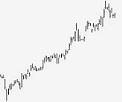|
Learn The Fundamentals Of Options
|
|
In Part One of Learn The Fundamentals Of Options Trading, we introduced the concept of the Greeks as trading tools and discussed delta and theta.
In this second lesson on the fundamentals of options trading, we'll continue where part one left off by examining gamma and vega and discover additional distinctions on option pricing that will explain why prices move the way they do. (Note: unlike the others, vega is NOT a Greek letter.)
After delta and theta, next in line is gamma. Here again the mathematics is slightly advanced, but the idea is simple. (For those who remember some college calculus, gamma is a function of the first derivative of delta.)
Gamma measures the rate of change of delta with respect to changes in the price of the underlying asset. Gamma is helpful when trying to estimate the price of an option relative to the degree it's in or out of the money.
When an option is far in or out of the money, gamma is small. When the option price approaches 'at-the-money', gamma is a maximum.
Last, we look at vega. Vega measures the sensitivity of the price of an option to changes in volatility. Volatility is the frequency with and degree to which a price changes. When prices rise or fall sharply, volatility is high.
(Volatility is yet another 'Greek', beta. Mathematicians and traders both are restless and ever-curious people, so there are actually several kinds of volatility. Implied volatility, for example, is determined by exercise price, rate of return, maturity date and premium. Historical volatility is another commonly charted item.)
The calculations are complex, but again the idea is simple. Risk increases as volatility rises, because risk is all about uncertainty and potential loss or gain.
If the price changes slowly, investors have time to react. If the price changes by an extremely small amount, there is little to lose or gain. Both factors are important in measuring risk. A highly volatile instrument experiences large swings in price in short periods of time.
Vega is one helpful measure for quantifying that volatility and making trading decisions. Any increase in volatility in an underlying asset, will tend to show up as an increase in the price of an option. Individual options vary in the amount of their reaction to volatility, though, and so different options have different vegas.
Keep in mind that all these pieces of data, though useful and arrived at by complex mathematical formula, are at bottom guesses. Educated guesses, to be sure, but nevertheless estimates in an inherently uncertain market.
|
All are based on various models of how options prices and the assets underlying these derivatives may behave in the future. Those models are, as their proponents will agree, not exact predictions.
The two most common are perhaps the Blacks-Scholes model and the Binomial model. There's no need here to display these elegant but intimidating formulae.
The savvy trader need only remember that the data should be used as part of an overall strategy of research, not as a substitute for research.
Acquire the software needed to display these figures, along with several other useful ones, and look for trends. Even short term traders (as options traders tend to be) need to examine past long-term trends before placing their bets.
And if you'd like to cut out all the hype and B.S. about learning to trade options and learn EXACTLY how to do it right from an expert, check out The Options University.
Your membership includes everything you need to start trading options profitably TODAY! Visit The Options University today...
Visit Our Premium Partner
| Are you ever worried you could lose money on a bad investment? There is a simple way to eliminate this feeling — it's with knowledge. Stock Trading Experts will show you how to profit from your investments |
Click
Here To Return To The Options Information Home Page
The options trading and technical analysis information shared on this website is for educational purposes only and is not an invitation to buy or sell securities. While everything here is believed to be accurate, it should not be considered solely reliable for use in making actual investment decisions. Trading options is a risky business and you can lose more than your original capital. Always consult a licensed broker or adviser before trading the market.
Brought To You By Hobby And Lifestyle. Your Complete Guide To Hobbies, Pastimes And Getting The Most Out Of Life

